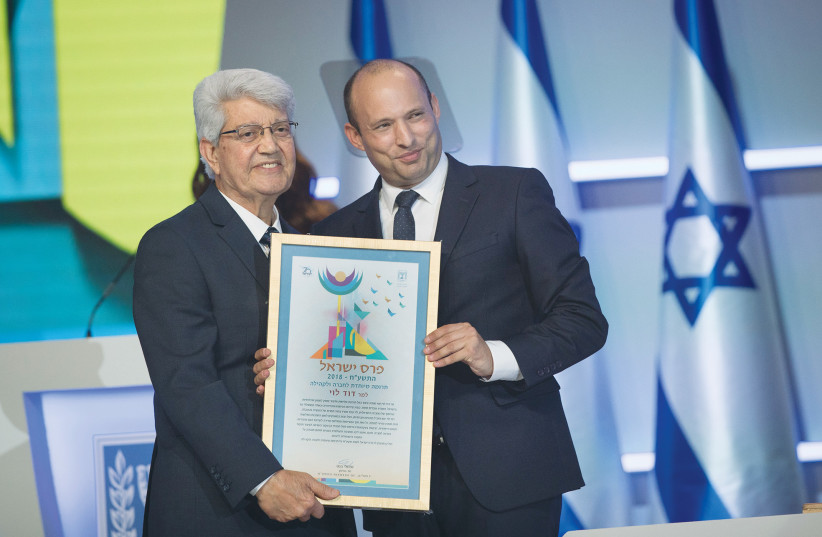With his carefully coiffed hair, baritone voice, and grandiose manner of speaking, David Levy – who passed away Sunday at age 86 – made his presence felt on this country’s political stage for more than three decades.
From 1969, when he first entered the Knesset as a member of the Gahal party, to 2006, when he finally left as a Likud member, Levy held numerous senior ministerial positions, including foreign minister – a post he held three separate times – and deputy prime minister.
He viewed himself as prime ministerial material, and he ran three times for the leadership of Herut and its successor, Likud, only to be defeated twice by Yitzhak Shamir and once by Benjamin Netanyahu.
Levy, who immigrated to Israel from Morocco in 1957 at age 19 and soon after settled with his family in Beit Shean, where he had lived ever since and raised 12 children with his wife, Rachel, is the quintessential Israeli rags-to-political-riches tale.
All immigrants can appreciate the difficulty and impressive nature of the following feat: Within 12 years of aliyah and without even a high school diploma, he became a Knesset member. Two decades after moving here – in 1977 – he was instrumental in forging an alliance between Mizrachi voters and the Herut party that realigned and shaped Israeli politics for generations.

Levy's partnership with Menachem Begin
It was Levy, a construction worker and hard-working labor organizer, who linked up with Herut’s Menachem Begin in the 1977 elections and helped break the Labor Party’s stranglehold on Israeli politics. Levy opened the door for Mizrachim, many resentful of the treatment they received from the Ashkenazi elite, to vote for the very-Ashkenazi Begin – no mean feat.
Begin rewarded Levy by making him immigration absorption minister and, two years later, housing and construction minister. There, he left his mark both by building affordable housing in development towns and by providing incentives for young couples to move to settlements in Judea and Samaria.
But more than anything else – more than his stints as housing and construction minister, foreign minister, and founder of the Likud-breakaway Gesher party – Levy will be remembered for giving a political voice to Mizrachim, who, before his appearance on the political stage, felt discriminated against and largely disenfranchised.
He genuinely broke the glass ceiling for Mizrachim in politics, all the while never forgetting and being very proud of where he came from. Levy gave a prominent voice to what has become known as “Second Israel” and was a trailblazer for a generation of Mizrachi politicians who followed him, such as Moshe Katsav and David Magen.
Former president Reuven Rivlin, a Levy ally in the Likud, eulogized him in Yediot Aharonot on Sunday, writing that Levy “caused hundreds of thousands of Mizrachim to feel that they were part of the system and that their fates were intertwined with that of the system.” It was Levy, Rivlin wrote, who opened the doors to Mizrachi ministers beyond what was long considered their territory: the police ministry and the now-defunct postal ministry.
Most of the time a moderate and pragmatic politician, Levy was also known for brinkmanship politics – honing the threat to leave the government and even the party to a near art form.
During his long years in politics, Levy felt looked down upon because of his Moroccan background. This feeling was fed by “David Levy jokes” that cast him as a fool who was in way over his head. He also did not speak English, for which he was often derided. In addition to Hebrew, he did, however, speak French and Moroccan Arabic.
At the same time, Levy was not shy about using his ethnicity to woo voters and played the “ethnic card” when he felt slighted, something that happened not a few times during his long career.
Levy was a man of keen political instincts and a genuine representative of the periphery. That his death elicited an outpouring of praise from both the Right and the Left, political allies and foes alike, is a testament to the degree to which he was viewed as a hard-working politician and patriot who provided a voice to those who largely lacked one before he rose to political prominence.
